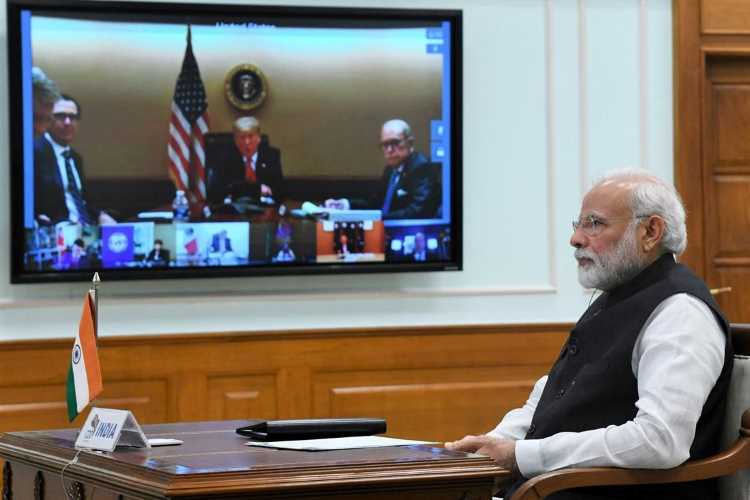
The G20 on Thursday pledged to pump in $5 trillion fiscal stimulus into the world economy to cushion the economic fallout of new coronavirus outbreak and promised all efforts to tame the pandemic.
The leaders of world’s 20 largest economies vowed to ensure the supply of medicines and equipment across borders and to tackle supply chain disruptions, a statement issued after a video conference summit on Thursday. The leaders said they will roll out all necessary health measures required to stop the virus from spreading.
The leaders were concerned about the risks to poor nations and populations and said they will strengthen global financial safety nets and health systems. The G20 was created after the global financial meltdown of 2008-2009 to ensure coordination and concerted action during economic crises.
READ: Covid-19: Modi government announces Rs 1.7 lakh crore welfare package
The video conference summit was initiated by Saudi Arabia, which chairs the G20 at present, after the grouping came under attack for its slow response to the outbreak. Covid-19 has infected at least 5,32,000 people globally, killing more than 24,000.
World nations led by the US, China, the UK, Europe, Japan, and India have announced huge fiscal stimulus packages to avert a global depression. The commitments made by governments add up to an unprecedented $6 trillion according to initial calculations.
READ: Economy and governance in the time of coronavirus
The G20 leaders said they would coordinate responses to avoid unnecessary interference in the face of bans on the export of medical supplies. Emergency steps will be “targeted, proportionate, transparent, and temporary”, the G20 said.
The grouping must resume the flow of goods and services as early as possible to restore confidence in the world economy, said King Salman of Saudi Arabia in his opening remarks.
The G20 asked the International Monetary Fund and the World Bank to provide support to countries badly affected by the coronavirus outbreak. IMF managing director Kristalina Georgieva may ask the Fund’s steering committee to double the emergency financing available from the current $50 billion, say news reports.
